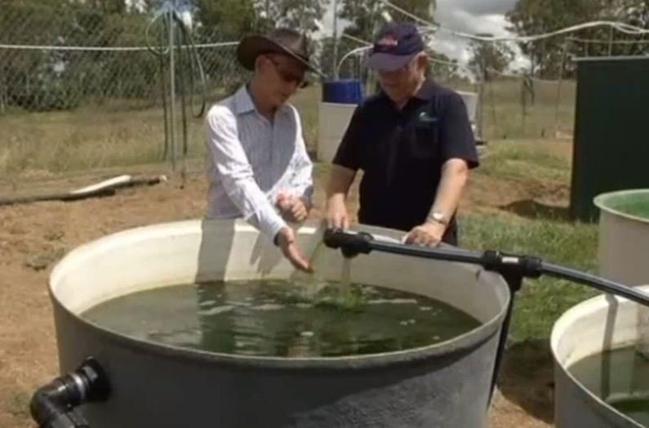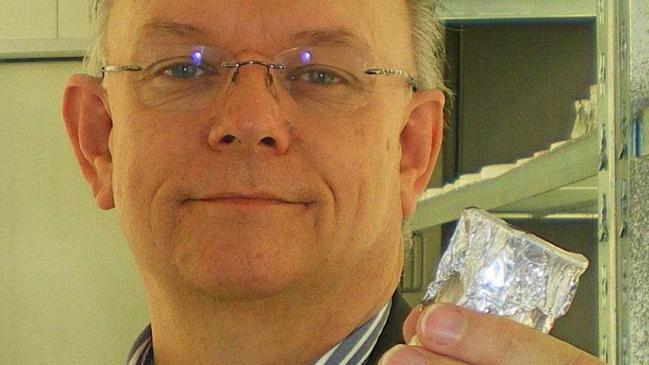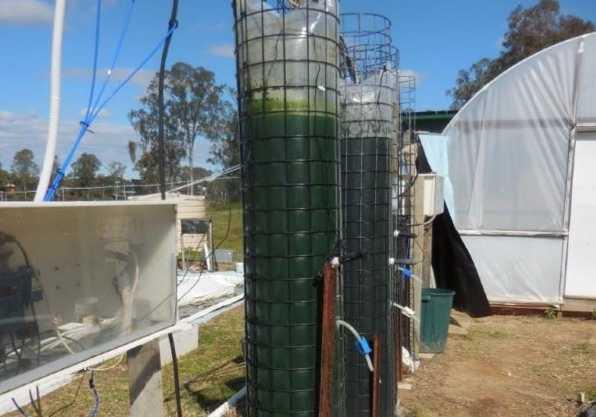New algae farm could mean big bucks and 100 jobs for Ballina
ALGAE grown on the Richmond River could soon be used in meat alternative products, with plans to build a major commercial farm at Ballina.

Business
Don't miss out on the headlines from Business. Followed categories will be added to My News.
ALGAE could mean big bucks, and 100 jobs, for the Ballina economy, spurred on by the demand for alternative meat products and oils.
A Brisbane-based algae farming company, Qponics Limited, has already identified possible sites on the Richmond River to establish a commercial outdoor facility to supply an alternative protein food ingredient and omega-3 oils to meet the growing billion dollar global market.
Qponics managing director and CEO, Dr Graeme Barnett, said global demand for plant-based alternative protein from soybeans and chickpeas in "meatless meat, fishless tuna and chicken-free chicken" products has suddenly escalated.

"While we initially developed omega-3 fatty acid in an Australian marine species of microalgae, we've since found the high-protein biomass by-product is a perfect protein source for the alternative meat market," Dr Barnett said.
Dr Barnett said the worldwide market for alternative protein is worth $2.2 billion and expected to reach $17.9 billion by 2025, while the overall growth in consumption of meat-based protein worldwide is expected to decline by half over the next decade.
He estimated that within seven to 10 years, as the proposed Ballina algae farm expanded to greater than 100 hectares of algae ponds, about 100 direct new jobs would be created in the region.
These jobs will include farm workers, supervisors, scientists, technicians, office staff and management personnel.
Qponics Limited received a $1 million grant through the federal government's Cooperative Research Centres Project (CRC-P) program in partnership with the University of Queensland (UQ) and Melbourne-based Nutrition Care Pharmaceuticals to establish a scalable, automated and modular algae farm.

"Our goal was to transform UQ's pilot algae farm into a scalable, automated and modular algae farm to demonstrate the company's capability to construct a large commercial marine microalgae farm planned for the Ballina region", Dr Barnett said.
The first species of marine microalgae to be commercially cultivated by Qponics is Nannochloropsis oceanica, originally isolated from the Brisbane River.
This fast-growing species is harvested from each production pond every three days to extract EPA-rich oil as the company's primary product.
The company said the Ballina area suited the project as it is close to the algae scientific expertise of UQ, has an ideal climate with high average sunshine hours, warm winters and summers that are not too hot and moderated by sea breezes, with available, affordable and flat agricultural land on the bank of tidal river close to urban centres.

Professor Peer Schenk from UQ said his team was pleased to work closely with Qponics to upgrade the algae farm into a small-scale commercial facility to produce a "safe, natural and vegetarian-friendly source of EPA omega-3 oil."
"It is well established that most of the world's population is deficient in essential omega-3 fatty acids like EPA and DHA, which contributes to a wide spectrum of health disorders," Professor Schenk said.
Dr Barnett said Qponics has met with Ballina Shire Council staff and plans to submit a full development application "at the earliest opportunity".


